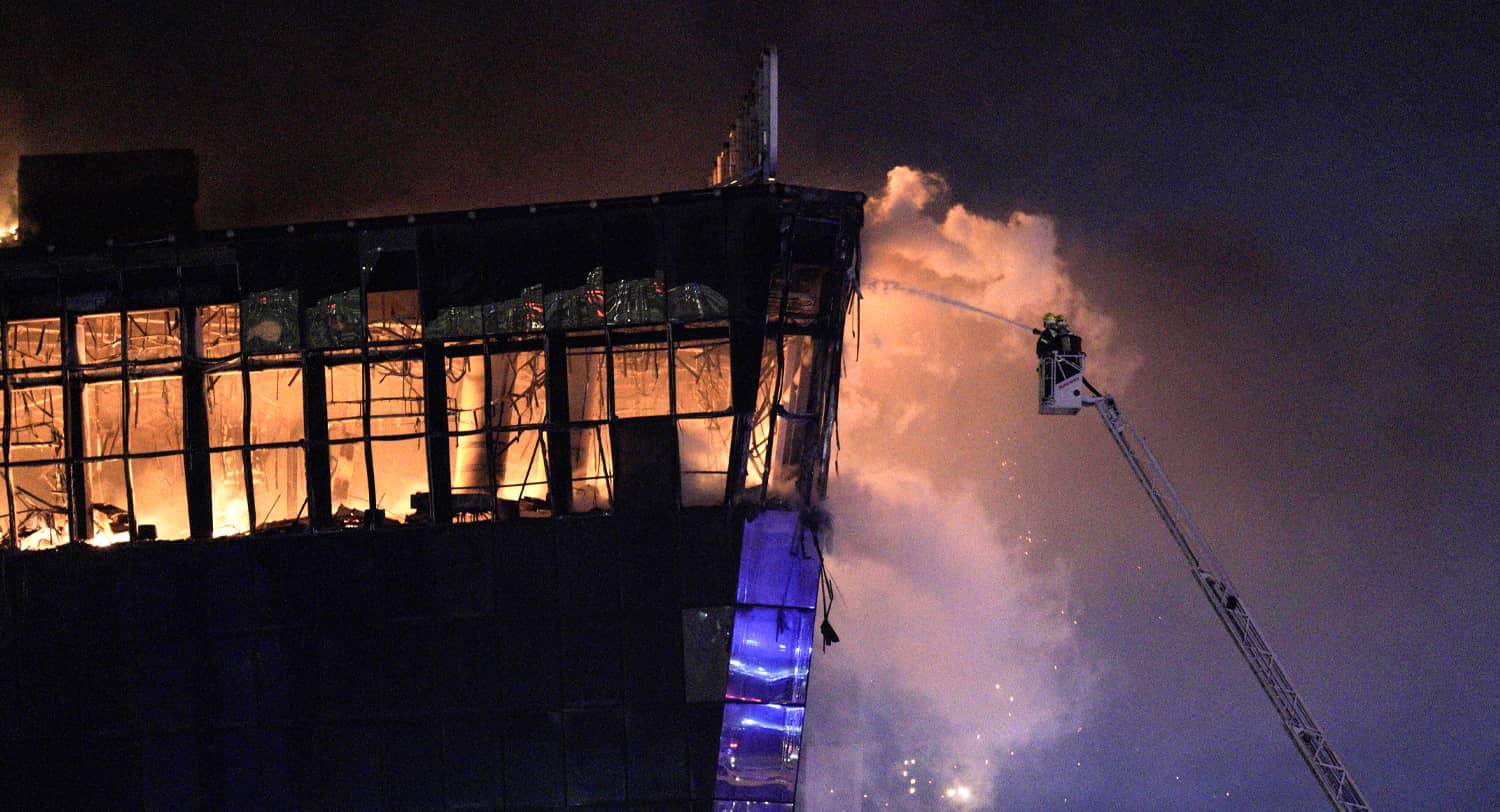The March 22 terrorist attack in Moscow left 133 dead, more than 130 injured, and many urgent questions about the return of ISIS, a Syria-based terror group long thought to be vanquished.
Days before the bloodshed, the US secretly warned the Kremlin about a potential ISIS attack, giving actionable intelligence under its longstanding “duty to warn” doctrine, according to The Wall Street Journal.
In addition, two recent reports by intelligence services in the US and Spain warned of terror strikes by the Islamic State.
Clearly, ISIS has risen from the dead. Consider the “Annual Threat Assessment of the U.S. Intelligence Community,” made public on February 5 by the Director of National Intelligence. According to this report, ISIS remains a centrally-controlled organization with global reach, even after missile and drone strikes have depleted its leadership ranks and it has been forced to rely on local affiliates to launch attacks.
Even in its weakened state, it is determined to kill civilians in Russia and in NATO countries. The US report pointed to ISIS-Khorasan (or “ISIS-K” in US intelligence parlance) as a terror group seeking to increase its attacks against foreign interests in Afghanistan as a way of testing the Taliban’s hold on that contested land. Next, ISIS-K will attack American and Western interests beyond Afghanistan.
The report published by the Spanish counter-espionage agency reached the same ominous conclusion about ISIS. For Spanish intelligence, the Russian invasion of Ukraine and the Israel-Hamas war in the Gaza Strip are key threats to the world order. For the Spanish intelligence agency, the Ukraine war is a direct challenge to both NATO and the EU, showing the limits of Europe’s preparation, political will, and ammunition stores.
Taken together, these official reports speak of an unprecedented attack on Western stability, potentially undermining security arrangements in place since the end of World War II. Likewise, the reports highlight the shocking decline in economic and social stability, which will lead, according to Spanish intelligence, to a rise in bombings and shootings across the globe.
Jihadist terrorism remains a top threat, warns Spanish intelligence, more than 20 years after the September 11 attacks. To date, the West has done too little to subdue it. The repeated beheadings of ISIS and Al-Qaeda leadership, by drone strikes, has not shattered these groups, which countered by dispersing their forces. ISIS has reduced its footprint in Iraq and Syria, but its subsidiaries in the Saharan borderlands and across Asia still kill and maim innocents.
Murderous strikes by regional franchises – whether linked to Al-Qaeda offshoots like Al-Shabab or to ISIS like ISIS-K – help draw new recruits, collect new money, and score propaganda victories. Thus, terror refuels itself. Expect terrorist outrages to become more lethal and more wide-ranging, while regional conflicts intensify.
Meanwhile, America and Europe face an ambitious but anxious China, an erratic Russia, a dangerous Iran and its proxies in Gaza, Yemen, Lebanon, Syria and elsewhere.
The West could be overwhelmed by the sheer number and size of the challenges to its 79-year-old cherished norms. Will the world order outlive the Baby Boom?
For the first time, that is an open question. We must dispel any notion of dismissing the gravity of the moment or indulge in the comforting lie that terrorism has been contained.
Instead, we must make combating terrorism a common global objective and forge new cooperation with every nation on the coasts and islands of the Eurasian landmass, along with Africa and the Caribbean. This means sharing intelligence and technology, while building counter-terror capacities in smaller, weaker nations.
The mass killings in Moscow should be a wake-up alarm for the world.

